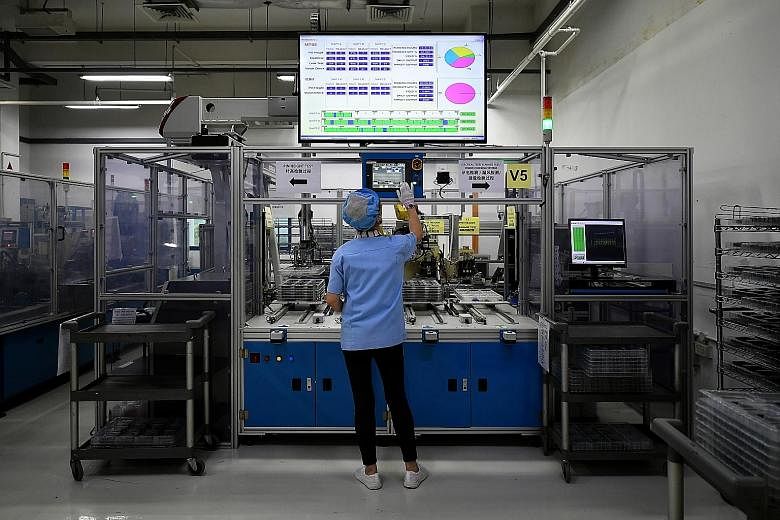To seize new opportunities in a post-Covid-19 world, Singapore's 23 Industry Transformation Maps (ITMs) will be refreshed as part of a new plan over the next five years.
Dubbed ITM 2025, it will be strengthened by three new thrusts: incorporating the recommendations of the Emerging Stronger Taskforce; closer integration with research and innovation; and greater focus on jobs and skills.
"We must redouble our efforts to prepare our workers and businesses for this future... We have a headstart, as we started our ITM effort five years ago," said Deputy Prime Minister and Coordinating Minister for Economic Policies Heng Swee Keat yesterday.
He was speaking at the first virtual meeting of the new term of the Future Economy Council (FEC), which he chairs and which oversees the ITMs.
"Many companies have also managed to weather the crisis, preserving capabilities and retaining skilled workers. On the back of our strong tripartite foundation, we are building for the future from a position of strength," Mr Heng added.
The ITMs were launched in 2016 under the FEC, as road maps to drive transformation of 23 industries across manufacturing, built environment, trade and connectivity, essential domestic services, modern services and lifestyle.
Mr Heng said that these economic transformation efforts will be integrated more closely with the national Research, Innovation and Enterprise (RIE) 2025 plans, in which Singapore is investing $25 billion over the next five years.
To better address the needs of businesses and Singaporeans, and translate R&D into business solutions and products, the FEC's work has been reorganised to align with the four RIE domains: manufacturing, trade and connectivity; human health and potential; urban solutions and sustainability; and smart nation and digital economy.
ITM 2025 will also incorporate the recommendations of the Emerging Stronger Taskforce, launched last May to chart Singapore's post-pandemic economy.
At yesterday's meeting, the task force presented its recommendations on how Singapore can ride on the digital revolution, and the pursuit of greater sustainability and inclusive growth. Mr Heng noted the task force has also piloted a new approach to public-private partnerships through Alliances for Action, which are industry-led coalitions to act on growth opportunities.
This new way of partnership can be an integral part of ITM efforts, he said, adding that the task force will share more details in the coming weeks.
In his speech, Mr Heng also stressed the importance of jobs and skills to help people reach their fullest potential, as well as the continued importance of tripartite partnerships.
"As the economy transforms, we must help displaced workers move to other good jobs, and enable our senior workers to continue working if they wish to," he said.
"We should build on the strengths of our people. They have a strong foundation in their school years and can look forward to the next bound of SkillsFuture."
Noting that the global economy in the coming years will be filled with greater uncertainty and complexity, and the next phase of Singapore's economic journey will be more challenging, Mr Heng said Singapore must continue to adapt and evolve its approach.
The FEC will also see several new faces from May 15.
These include Sustainability and the Environment Minister Grace Fu, incoming Trade and Industry Minister Gan Kim Yong, Social and Family Development Minister Masagos Zulkifli, and incoming Manpower Minister Tan See Leng.
New private and public sector representatives include Woh Hup Holdings executive director Neil Yong, CapitaLand group CEO Lee Chee Koon, Pontiac Land Group head of hotels Kwee Wei-Lin, and Nanyang Polytechnic principal and CEO Jeanne Liew.
National Trades Union Congress president Mary Liew, an FEC member, said the labour movement has been encouraging companies to tap NTUC's resources and networks to set up company training committees.
"As businesses develop new capabilities, so too will our workers benefit from better and improved training," she said. "The labour movement stands ready to support the work of the FEC and the ITMs, and to leverage the strength of our collective efforts, so that our workers will have better wages, welfare and work prospects."


